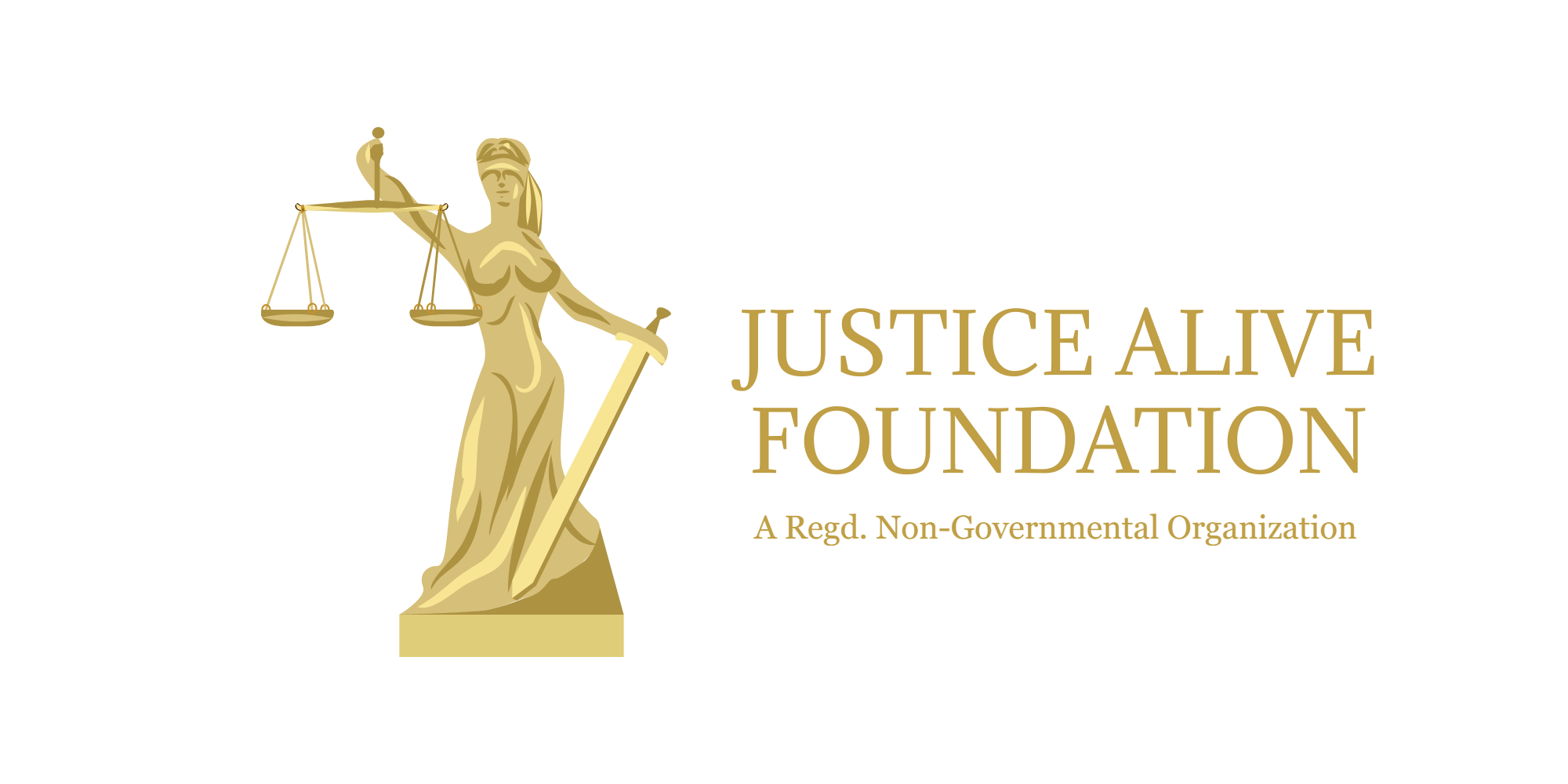
Empowering NGOs in India: Legal Framework and Challenges
This article has been written by Ms. Abhiruchi Kumari.
INTRODUCTION
The socio-economic and legal landscape of India is significantly influenced by non-governmental organizations (NGOs), which act as engines for empowerment, development, and social change. These organizations have become significant change agents in a variety of fields, including education, healthcare, environmental preservation, women’s rights, and poverty alleviation, thanks to their dedication to addressing urgent societal concerns. Understanding the legal framework, difficulties, and best course of action for empowering NGOs becomes essential as India works towards sustainable development and inclusive growth.
One cannot exaggerate the importance of NGOs in the socioeconomic and legal context of India. With a sizable and diversified population, India faces several difficulties, such as social injustice, poverty, illiteracy, gender inequality, and poor healthcare. Although the government is crucial to solving these challenges, the size and complexity of the issues demand cooperation and involvement from other parties, including NGOs. NGOs support government initiatives by supplying creative solutions, gathering funding, increasing awareness, and fighting for marginalized communities.
NGOs’ capacity to close gaps in the delivery of public services is one of the main reasons why they are essential in India. Government programs frequently fail to reach the most vulnerable areas due to resource constraints and administrative inefficiency. The immediate needs of the poor are met by NGOs by stepping in to provide necessary services including healthcare, education, vocational training, and support for daily living.
NGOs are essential in supporting policy changes and influencing legislative procedures. They serve as watchdogs, keeping an eye on government policies and initiatives and holding decision-makers responsible for their deeds. NGOs raise awareness of social issues by doing research, analyzing data, and advocating for change. This has an impact on public opinion and helps to shape policy debate. They offer useful suggestions to decision-makers, assisting them in creating policies that are more inclusive and equal.
NGOs also act as hubs for empowering and mobilizing local communities. They enable people and communities to take an active role in their own development by planning awareness campaigns, skill-building workshops, and training programmes. NGOs help marginalized groups develop a sense of agency and ownership that empowers them to stand up for their rights, demand justice, and oppose repressive systems.
Nevertheless, NGOs in India confront numerous difficulties despite playing a vital role in society. The regulatory structure is one of the major obstacles. The lack of accountability and openness in the NGO sector is another issue. Although the majority of NGOs function honorably, there have been cases of poor management, money misuse, and corruption, all of which have damaged public confidence. Calls for increased openness, harsher laws, and better governance systems within the industry have been sparked by these instances.
In conclusion, NGOs in India are of enormous importance from a socioeconomic and legal standpoint. They are essential for empowering marginalized communities, promoting policy changes, and closing gaps in the provision of public services. But there are a number of obstacles they must overcome, such as a stringent regulatory environment and problems with accountability and transparency. NGOs can be equipped to effectively support India’s social advancement and sustainable development by tackling these issues and using a cooperative approach.
LEGAL FRAMEWORK FOR NGOs IN INDIA
In India, non-governmental organizations (NGOs) are essential in solving a range of social, economic, and environmental issues. The nation has built a legal framework controlling NGOs in order to guarantee openness, accountability, and efficient operation. This analysis focuses on the legal framework that oversees NGOs in India, including important statutes like the Foreign Contribution (Regulation) Act, the Trusts Act, and the Societies Registration Act. We will also examine the registration, compliance, and reporting procedures for non-governmental organizations. The assessment will also cover the difficulties faced by NGOs in India and suggest alternative solutions to strengthen these groups.
Regulatory framework for NGOs:
The Societies Registration Act, 1860, which provides the legal foundation for the registration and operation of societies—a common type of NGO in India—provides the regulatory framework for NGOs. The steps for establishing a society, the make-up of the governing body, and the upkeep of accurate books and records are all outlined in this act. Annual financial reports and statements must be submitted by societies to the Registrar of Societies.
Public charity trusts must be registered and managed in accordance with the Indian Trusts Act of 1882. Trusts are created to further charity goals like those related to healthcare, education, eradicating poverty, and more. In accordance with the provisions of this act, trusts may be established, trustees may be chosen, and trust funds may be used. A trust must keep accurate records and submit annual financial statements.
The acceptance and use of foreign contributions by NGOs in India are governed under the Foreign Contribution (Regulation) Act, 2010 (FCRA). This law makes sure that contributions from abroad are used for lawful causes rather than actions that can jeopardize public order or pose a threat to national security. To receive foreign donations, NGOs must register with the FCRA and follow its reporting guidelines.
Process for NGO Registration:
Under the Companies Act, 2013, organizations can incorporate a Section 8 company, a society, or a trust in order to register as an NGO in India. The registration procedure differs according to the legal structure selected. While the aforementioned Acts listed above govern the registration of societies and trusts, the Corporations Act of 2013 applies to section 8 corporations.
Compliance Requirements and Reporting Requirements for NGOs: After registering, NGOs are subject to a number of compliance requirements and reporting responsibilities that must be met in order to maintain their legal standing and eligibility for a number of advantages. These prerequisites consist of:
- keeping accurate records of financial transactions and books of accounts.
- providing audited financial statements and having competent auditors conduct annual audits.
- submitting yearly reports to the appropriate registry, such as the Registrar of Societies, the Charity Commissioner, or the Registrar of Companies.
- observing tax laws, such as the Income Tax Act of 1961’s provisions for tax exemptions and the filing of income tax returns.
- If you receive foreign contributions, you must abide by FCRA rules, which include keeping separate bank accounts, producing annual reports, and getting approval in advance for certain operations.
The legal framework in India for NGOs offers a structure for their registration, operation, and financial resource utilization. However, problems like compliance difficulties, regulatory roadblocks, and ambiguities still exist. Process simplification, improved collaboration, and capacity-building efforts are crucial for empowering NGOs and enabling them to successfully solve societal concerns. India can utilize NGOs’ ability to bring about beneficial social change and advance the development of the country by creating an atmosphere that is supportive of them.
CHALLENGES FACED BY NGOs:
In India, non-governmental organizations (NGOs) are essential for tackling social problems and advancing development. These organizations frequently have a variety of difficulties that limit their ability to operate and affect positive change. The purpose of this article is to identify and examine the difficulties that NGOs in India confront, such as logistical difficulties, financial limitations, and regulatory obligations. It will also go over the effects of recent legislation changes and how they may affect how NGOs operate.
Challenges:
- NGOs in India frequently run against administrative roadblocks that interfere with their day-to-day operations. NGOs frequently encounter challenges like lengthy registration processes, delays in receiving required permissions, and bureaucratic red tape. The Foreign Contribution (Regulation) Act (FCRA) registration procedure is drawn out and complicated, which restricts foreign funding and makes it more difficult for NGOs to raise money.
- Funding Restrictions: For NGOs in India, finding sustainable funding is a major problem. Although there is a willingness on the part of people and organizations to support social issues, there is fierce rivalry for funding. Many NGOs find it difficult to get long-term financial commitments and instead rely on project-based grants or donations. Furthermore, more stringent limitations regarding foreign fundraising have been enforced by recent FCRA revisions, which have resulted in increased funding restrictions for NGOs.
- Compliance Burdens: NGOs in India must comply with a variety of requirements, which can take a lot of time and resources. They are required to keep exact records, provide regular reports, and follow strict accounting guidelines. Complying with complicated rules frequently takes time and money away from the NGOs’ primary goals. Legal repercussions may follow noncompliance with regulatory regulations, which could harm the organization’s operations and reputation.
Impact of legal reforms:
The functioning of NGOs in India has been significantly impacted by the passage of recent legal reforms. Significant modifications have been made to the FCRA, which governs the use of foreign contributions. Although these changes were made to increase transparency and accountability, they unintentionally presented NGOs with more difficulties.
- Stricter Foreign Funding Regulations: As a result of the FCRA’s amendment, there are now tougher rules governing foreign fundraising, making it more challenging for NGOs to accept and use foreign contributions. The FCRA registration renewal procedure has grown increasingly difficult and time-consuming, which has caused a delay in capital inflows. Many NGOs have been negatively impacted by this, which has limited their ability to carry out important projects and initiatives.
- Increased Compliance Requirements: The revised FCRA has increased the compliance standards that NGOs must meet. These include the requirement that all office holders submit their Aadhaar cards, which serve as a unique identity number, register on the government’s website, and refrain from sub-funding other NGOs. These compliance requirements add to the administrative work that NGOs must do, taking time and money away from their main goals.
Implications and the Way Forward
The difficulties that NGOs in India are facing have a big impact on the nation’s overall development situation. NGOs are essential in filling in the gaps in public service delivery and fighting for underserved areas. The following actions can be taken to strengthen NGOs and guarantee their efficient operation:
- Streamline Administrative Procedures: Making NGOs’ registration and approval procedures simpler and faster will lower administrative barriers. The government ought to think about streamlining the procedures, ensuring accountability, and putting in place a system for approvals that is subject to deadlines.
- Foster a Sustainable Financial Environment: It’s essential to foster a sustainable financial environment. In order to devote long-term funding to NGOs, the government, business entities, and people should work together. Funding shortages may be overcome by promoting corporate social responsibility (CSR) programs and rewarding private-sector collaborations.
- Balanced Compliance Framework: The burden of compliance on NGOs should be reduced while still ensuring accountability and openness. To relieve NGOs of pointless administrative overhead, the government should simplify reporting requirements and create risk-based auditing procedures.
- Enhance Coordination and Cooperation between Government and NGOs: It is crucial to strengthen the partnership between the government and NGOs. A supportive environment for NGOs to flourish can be created by regular consultations, participation in policy-making processes, and the inclusion of NGOs in decision-making organizations.
NGOs in India encounter a variety of difficulties, such as paperwork restrictions, funding shortages, and regulatory responsibilities. The working climate for NGOs has become more challenging as a result of recent legal changes. It is critical to expedite administrative procedures, promote a supportive financing environment, provide a fair compliance framework, and increase collaborations between the government and NGOs in order to empower NGOs and give them the tools they need to address social concerns. By addressing these issues, India will be able to utilize NGOs to their fullest extent in fostering inclusive growth and social development.
LEGAL PROTECTION AND ACCOUNTABILITY OF NGOs:
In India, non-governmental organizations (NGOs) are essential for advancing social welfare, defending human rights, and tackling a range of development issues. There are regulatory frameworks in place that control the actions of the NGO sector to ensure transparency, accountability, and good governance. In order to monitor and control NGO activities in India, this article examines the legislative frameworks and the functions of regulatory authorities including the Income Tax Department and the National Human Rights Commission (NHRC).
In the NGO sector, accountability and transparency are the cornerstones of good governance. The Societies Registration Act of 1860, the Indian Trusts Act of 1882, and the Foreign Contribution (Regulation) Act of 2010 (FCRA) are only a few of the rules and regulations that govern NGOs in India. These rules are designed to guarantee that NGOs follow the law while conducting their business in an open and accountable manner.
The FCRA, in particular, governs how NGOs can accept and use funds from outside. It requires NGOs that accept donations from outside to register with the Ministry of Home Affairs and adhere to reporting guidelines. This entails keeping accurate records, conducting annual audits, and submitting yearly returns that include information on the foreign monies received and how they were used. The FCRA forbids using foreign funds for projects that harm the national interest or breach predetermined rules.
The Income Tax Act of 1961, which offers tax incentives to organizations involved in charitable activities, also applies to NGOs. NGOs can register under Sections 12A and 80G of the Income Tax Act to receive tax breaks for both themselves and their contributors. NGOs must keep up-to-date books of accounts, submit annual income tax returns, and endure ongoing inspection by the Income Tax Department in order to keep their tax-exempt status.
In addition to these legal safeguards, regulatory organizations like the NHRC and the Income Tax Department are essential for regulating and overseeing NGO operations. The Protection of Human Rights Act, 1993, established the NHRC, which is in charge of defending and advancing human rights in India. The NHRC looks at complaints against NGOs that might violate human rights even though its primary focus is on violations committed by governmental actors. The NHRC serves as a watchdog, ensuring that NGOs adhere to human rights values. It also has the power to suggest to the proper authorities that actions be taken against errant NGOs.
On the other side, the Income Tax Department is in charge of managing the financial aspects of NGO operations. In order to make sure that the terms of the Income Tax Act are being followed, it examines the yearly returns submitted by NGOs and performs audits. Additionally, the department has the power to look into instances of financial fraud and take appropriate action, like revoking tax exemptions or starting legal actions.
The Indian government has launched a number of steps to strengthen the regulatory system. Transparency and accountability in the NGO sector have improved as a result of the use of online filing systems, heightened inspection of FCRA registrations, and the use of technology to trace foreign contributions. In order to improve accountability, the government has also urged NGOs to implement self-regulatory practices such as internal audits and governance norms.
Striking a balance between regulation and the independence of NGOs is crucial, though. Regulation that is too strict or arbitrary might impede NGOs’ efforts and reduce their efficiency. Therefore, rather than using punitive methods to enforce compliance, regulatory organizations should take a collaborative and participative approach, working with NGOs and offering direction.
In conclusion, legal frameworks and oversight agencies are essential for maintaining accountability, transparency, and good governance in India’s NGO sector. A framework for regulation is provided by the FCRA, the Income Tax Act, and other pertinent laws, and organizations like the NHRC and the Income Tax Department monitor and control NGO activities. The government can enable NGOs to effectively contribute to the global community by striking a balance between regulation and autonomy.
ENHANCING THE ROLE AND IMPACT OG NGOs:
In India, non-governmental organizations (NGOs) are essential to solving social, economic, and environmental problems. However, they frequently encounter a number of issues that limit their efficacy, such as onerous regulatory procedures, difficult access to funds, and insufficient capacity-building programs. It is crucial to suggest solutions to these problems in order to improve the function and influence of NGOs. Exploring effective partnership models between NGOs and government organizations can also help to increase the overall influence of these organizations.
Streamlining Regulatory Processes:
Simplifying Registration: By streamlining and simplifying the registration process for NGOs, more organizations will be inspired to participate in social development initiatives. The government can set up an online portal that offers NGOs a simple way to register and submit the necessary paperwork.
Clear and Transparent Regulations: Creating clear and transparent regulations for how NGOs should operate can promote trust and accountability. Regulations should be clearly stated, easily available, and uniform throughout all states and areas, according to the government.
Facilitating Funding Access:
Dedicated financing Mechanisms: The government is able to establish financing sources that are devoted to supporting NGOs. This may entail creating a special fund, awarding grants, or giving tax breaks to people and businesses who donate to NGOs.
Increasing corporate social responsibility (CSR): Improving the CSR framework has the potential to considerably increase NGOs’ financing. In order to encourage cooperation between NGOs and the corporate sector, the government can provide incentives for businesses to devote a specific proportion of their profits to social development programs.
Strengthening Capacity-Building Activities:
Training and Skill Development: The government should develop thorough training programs to increase the capacity of NGO personnel and volunteers in partnership with NGOs and academic institutions. These courses could concentrate on effective communication, project management, and leadership abilities.
Knowledge Sharing Platforms: Establishing platforms for knowledge sharing and best practices exchange can facilitate collaboration among NGOs. The government should set up online forums or schedule recurring seminars and conferences where NGOs can exchange information, educate one another, and consider forming alliances.
Successful Models of Collaboration:
Participatory Governance: Using a participatory approach, where NGOs are included in the process of formulating policies and making decisions, can help social development programs be implemented more successfully. The government ought to support NGOs’ active participation in planning and evaluation procedures.
Public-commercial Partnerships (PPP): Collaborative projects between NGOs, governmental organizations, and commercial organizations can take advantage of their individual resources and strengths to have a stronger impact. The government might create guidelines and offer rewards to encourage effective PPP models.
Technical Support and Advisory Services: To provide technical support and advisory services to NGOs, the government can set up specialized divisions or centers. These departments can offer direction on organizational growth, monitoring, and evaluation of projects.
The role and influence of NGOs in India need to be expanded, and this calls for a multifaceted strategy. To empower NGOs, it is crucial to streamline regulatory procedures, make money easier to access, and boost capacity-building programs. Additionally, effective collaboration models between NGOs and government organizations, like participatory governance and public-private partnerships, can increase the overall impact of their efforts. By putting these tactics and concepts into practice, India can foster an atmosphere that encourages NGOs to flourish and make a greater impact on the nation’s social development objectives.
RECOMMENDATIONS FOR POLICY AND LEGAL REFORMS:
Enhancing the legal and regulatory environment in which NGOs operate is essential for giving them more power and enabling them to have a greater impact on social development in India. This entails putting into practice legislative and regulatory changes that encourage wider involvement, streamline compliance procedures, and guarantee the protection of rights. The government can create an environment that supports and enables NGOs in their work by focusing on five important areas.
Recommendations:
1. Increased Participation and Consultation
a. Inclusive Policy Formulation: The government should use a participatory approach when formulating policies, actively incorporating NGOs in the decision-making process. Regular consultations, stakeholder gatherings, and the creation of specific forums for communication and cooperation can all help with this.
b. Advisory Panels: The creation of advisory panels with NGO representation can contribute important knowledge and experience to policy deliberations. This guarantees that NGOs’ viewpoints and requirements are taken into account during the decision-making process.
2. Simplified Compliance Processes:
a. Single Window Clearance: Establish a centralized, simplified system for NGO registration and compliance that lowers administrative barriers and gets rid of duplicative steps. For NGOs, this would streamline the processes and free up time and resources.
b. Standardized Reporting Requirements: Create uniform reporting requirements and templates for NGOs, which will ease the burden of compliance and ensure uniformity among various regulatory bodies.
c. Create an online platform where NGOs can access and submit compliance-related documentation, eliminating the need for physical submissions and promoting better efficiency and transparency.
3. Protection of Rights:
a. Legal Recognition and Support: NGOs should be legally recognized as important forces in the advancement of society, and their freedom to pursue social causes and engage in public interest activities should be upheld.
b. Upholding and defending NGOs’ basic rights to freedom of expression and association will allow them to function independently, express disapproval, and work together without worrying about intervention or retaliation.
c. Whistleblower Protection: Pass legislation to shield NGO employees who expose fraud, wrongdoing, or legal infractions. Mechanisms for protecting whistleblowers should promote openness and accountability while preventing reprisal.
4. Capacity Building and Support:
a. Training and skill development: Create specialized training programs to improve the capacity of NGOs and their staff in areas like project management, financial management, advocacy, and legal compliance. These courses should offer helpful knowledge and skills and be specifically suited to the needs of NGOs.
b. Establish technical assistance and resource centers that provide NGOs with access to best practices, advisory services, and technical support. In order to help NGOs run more efficiently, these centers can offer advice on organizational development, fundraising, networking, and impact monitoring.
Policy and legal reforms are necessary to strengthen NGOs in India and provide them the capacity to carry out their critical function in social development. The legal and regulatory environment for NGOs should be improved with provisions for increased participation, streamlined compliance procedures, and rights protection. By putting these ideas into action, the government can build a thriving civil society, encourage the expansion and impact of NGOs, and propel constructive change throughout the nation.
CONCLUSION
Non-Governmental Organizations (NGOs) are crucial to India’s socioeconomic and legal landscape, tackling a variety of societal problems and promoting sustainable growth. NGO effectiveness is hampered by a number of issues, including regulatory complexity, financing constraints, and capacity issues. It is essential to put into effect policy and legal reforms that address these issues in order to increase the role and effectiveness of NGOs.
Regulatory procedures must be made more efficient in order to lower administrative barriers and improve NGOs’ ability to operate. Administrative operations can be made more efficient by streamlining registration procedures, creating clear and transparent regulations, and implementing online platforms for compliance.
Facilitating funding access is a crucial component as well. The government ought to establish special funding sources for NGOs, including distinct funds or tax breaks for donations. Enhancing funding prospects can also be accomplished by strengthening corporate social responsibility (CSR) structures. Collaboration between NGOs and the corporate world can maximize impact by leveraging resources.
To improve the capabilities of NGOs, capacity-building activities must be strengthened. The efficacy of NGOs can be increased by training programs designed to meet their unique needs, such as those in project management, leadership, and financial management. Establishing knowledge-sharing platforms and resource hubs can also make collaboration, the exchange of best practices, and capacity building easier.
The main goal of legislative and policy changes should be to create a favorable environment for NGOs to operate in. The protection of rights, streamlined compliance procedures, and increased engagement and consultation of NGOs in policy creation are all recommended. Transparency, accountability, and freedom of expression can be advanced through establishing systems for whistleblower protection and securing legal recognition and assistance for NGOs.
To maximize their combined influence, NGOs and government organizations must develop successful collaboration models. Collaboration, synergy, and effective implementation of social development programs can be encouraged by participatory governance, public-private partnerships, and the provision of technical support and consulting services.
In conclusion, extensive policy and legal reforms are necessary for empowering NGOs in India. India can develop an environment that fosters the expansion and effect of NGOs by streamlining regulatory procedures, easing funding access, bolstering capacity-building programs, and improving cooperation between NGOs and government organizations. The country will experience good transformation as a result of these reforms, which will promote social justice, sustainable development, and the welfare of marginalized communities.





This Post Has 0 Comments